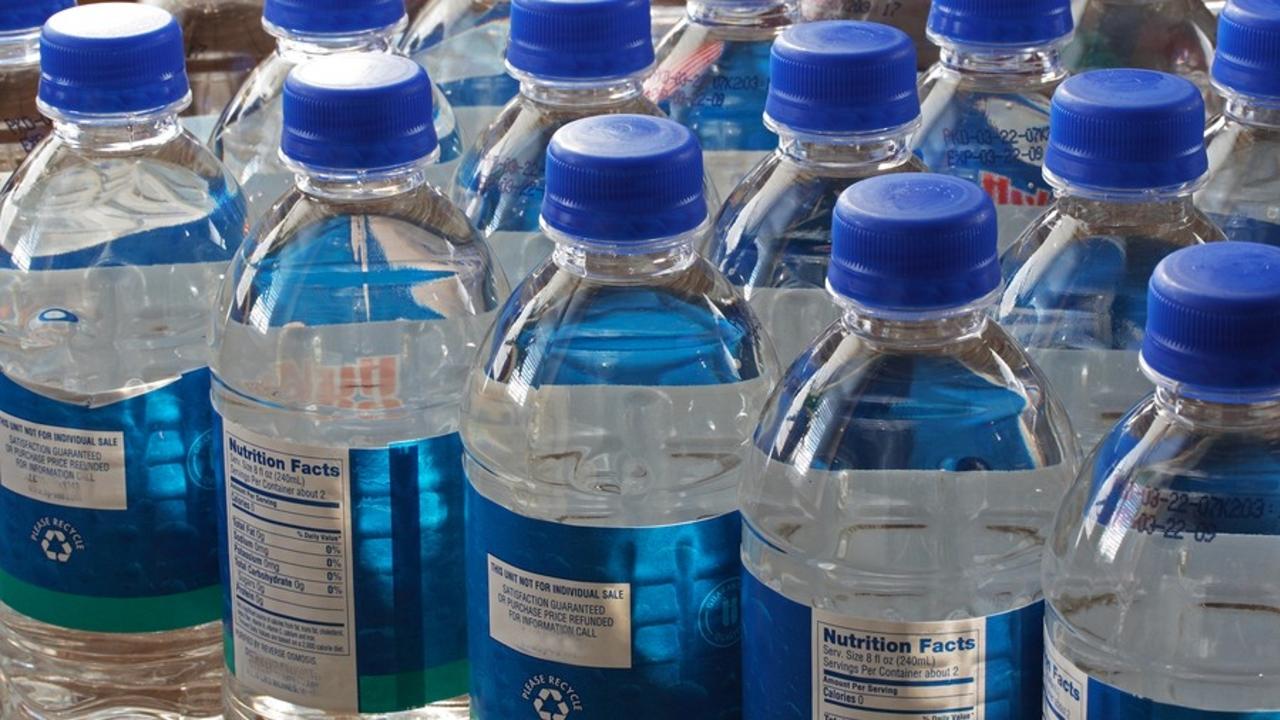All Water is Not Created Equal

All Water Is Not Created Equal
Everyone's carrying a water bottle. But not all water hydrates the same way.
You can drink a gallon of the wrong type and still end up chronically dehydrated, running to the bathroom every hour while your cells stay thirsty.
The difference isn't just purity. It's mineral content, osmolarity, and whether your body can actually hold onto what you're drinking.
Here's how to choose water that actually works.
Why Water Type Matters for Hydration
Your body doesn't just need H₂O molecules. It needs water with the right mineral content and electrical charge to move across cell membranes and stay in your tissues.
Pure water (no minerals) has low osmolarity. It passes through your system quickly because there's nothing holding it in your cells. You drink it, you pee it out, and your intracellular hydration status doesn't change.
Water with minerals has higher osmolarity. The dissolved electrolytes (sodium, magnesium, calcium, potassium) create the osmotic gradient that pulls water into cells and keeps it there.
This is why you can drink distilled or reverse osmosis water all day and still feel thirsty. Your kidneys are filtering it straight out because your cells can't use it without electrolytes.
Reverse Osmosis (RO) Water
RO forces water through a semi-permeable membrane under high pressure, filtering out bacteria, parasites, heavy metals, and most contaminants.
It also strips out nearly all minerals.
The dehydration pattern:
Patient: "I drink almost a gallon of water daily."
Me: "How often do you urinate?"
Patient: "Constantly. Every hour."
That's the RO signature. You're drinking water that can't be retained because it lacks the mineral content to create proper osmotic pressure.
Why RO water doesn't hydrate well:
Without minerals, the water has extremely low total dissolved solids (TDS). Your body treats it like a diuretic—it flushes through your kidneys without being absorbed into tissues.
Some people theorize the high-pressure filtration process alters hydrogen bonding in water molecules. That's speculative. What's not speculative is that demineralized water doesn't hydrate efficiently, and the clinical pattern is consistent.
If you're stuck with RO:
Add minerals back. A few pinches of high-quality sea salt per gallon restores electrolyte content. Or use trace mineral drops. You're essentially re-creating mineral water.
Better option: don't drink RO water regularly.
Distilled Water
Distillation boils water and collects the steam, leaving behind contaminants, minerals, and everything else that doesn't vaporize.
This removes fluoride, chlorine, and chloramines that municipal treatment plants add. It also removes calcium, magnesium, zinc, and every other mineral your body needs.
The mineral deficiency risk:
Drinking distilled water long-term leaches minerals from your body. Your system pulls calcium from bone, magnesium from muscle, and trace elements from tissues to maintain homeostasis.
Result: brittle bones, muscle cramping, fatigue, and electrolyte imbalances.
If you use distilled water:
Remineralize it. Add 2-3 pinches of unrefined sea salt per gallon. This restores enough mineral content to support hydration without the contamination distillation removed.
Spring Water
Spring water comes from underground aquifers that naturally filter through rock and soil. The earth acts as a purification system, removing contaminants while retaining minerals.
What makes it work:
Natural mineral content (calcium, magnesium, trace elements) from geological filtration. The water emerges with balanced electrolytes and proper osmolarity for cellular hydration.
The quality variable:
Not all springs are created equal. Some are contaminated with bacteria or parasites. Reputable manufacturers use ozone or UV sterilization to address this without adding chemicals.
How to verify quality:
Check the label for "bottled at source." This means the water was bottled at the spring, not transported and processed elsewhere.
Look for sources across state lines from where you live. Interstate commerce triggers stricter federal oversight than intrastate bottling. It's not a perfect filter, but it reduces the odds you're buying repackaged tap water with a nature-themed label.
Artesian Water
Artesian wells tap confined aquifers where natural pressure forces water upward without pumping. The aquifer sits between impermeable rock layers, which protects it from surface contamination.
The advantage:
Protected source, natural mineral content, and geological filtration.
The reality:
Many artesian brands charge premium prices for water that's functionally equivalent to good spring water. You're paying for marketing, not superior hydration.
Mineral Water
Legally defined as water containing at least 250 parts per million total dissolved solids (TDS), with consistent mineral ratios at the source.
No minerals can be added—what's in the bottle came from the ground.
Why this is the best option:
Protected sources (usually deep aquifers or springs), naturally high mineral content, and consistent electrolyte ratios. Your body gets both hydration and bioavailable minerals in every sip.
This is the water type that consistently tests well for cellular hydration and mineral delivery.
Sparkling Water
Carbonated water, either naturally (from volcanic activity) or artificially (CO₂ injection).
High-quality sparkling mineral waters (San Pellegrino, Gerolsteiner, Topo Chico) combine carbonation with substantial mineral content. They hydrate effectively while providing trace elements.
Glass bottles vs. plastic:
Always choose glass when possible. Plastic leaches endocrine disruptors (BPA, phthalates) into water, especially when exposed to heat or sunlight. You're filtering tap water to avoid chemical contamination, then drinking from a bottle that adds different chemicals.
Glass eliminates that variable.
What to Actually Buy
Best choices:
- High-mineral spring or mineral water in glass bottles
- Sparkling mineral water (Gerolsteiner, San Pellegrino, Topo Chico)
- Locally sourced spring water bottled at source
Acceptable compromises:
- Spring water in BPA-free plastic (if glass isn't available)
- Remineralized RO or distilled water (if that's your home filtration system)
Skip entirely:
- RO or purified water without remineralization
- Distilled water without added minerals
- Any water bottled far from its source
- "Purified drinking water" (usually tap water run through basic filtration)
The Bigger Context
Hydration isn't just about volume. It's about mineral delivery, cellular uptake, and whether your kidneys are dumping what you drink or your cells are actually using it.
Most people are chronically dehydrated despite drinking plenty of water. They're choosing demineralized water that can't be retained.
Your body needs minerals to function. Water is one of the best delivery systems—if you choose water that contains them.
For more on how hydration affects nervous system regulation and overall health, visit the Regulate Your System pillar page. And read the companion post on removing contaminants from your drinking water.
Questions about hydration status, mineral deficiencies, or electrolyte balance? Dr. JJ Gregor uses Applied Kinesiology to assess hydration and mineral status in his Frisco, Texas practice. Schedule a consultation to identify what your body actually needs.
Stay connected with news and updates!
Join our mailing list to receive the latest news and updates from our team.
Don't worry, your information will not be shared.

